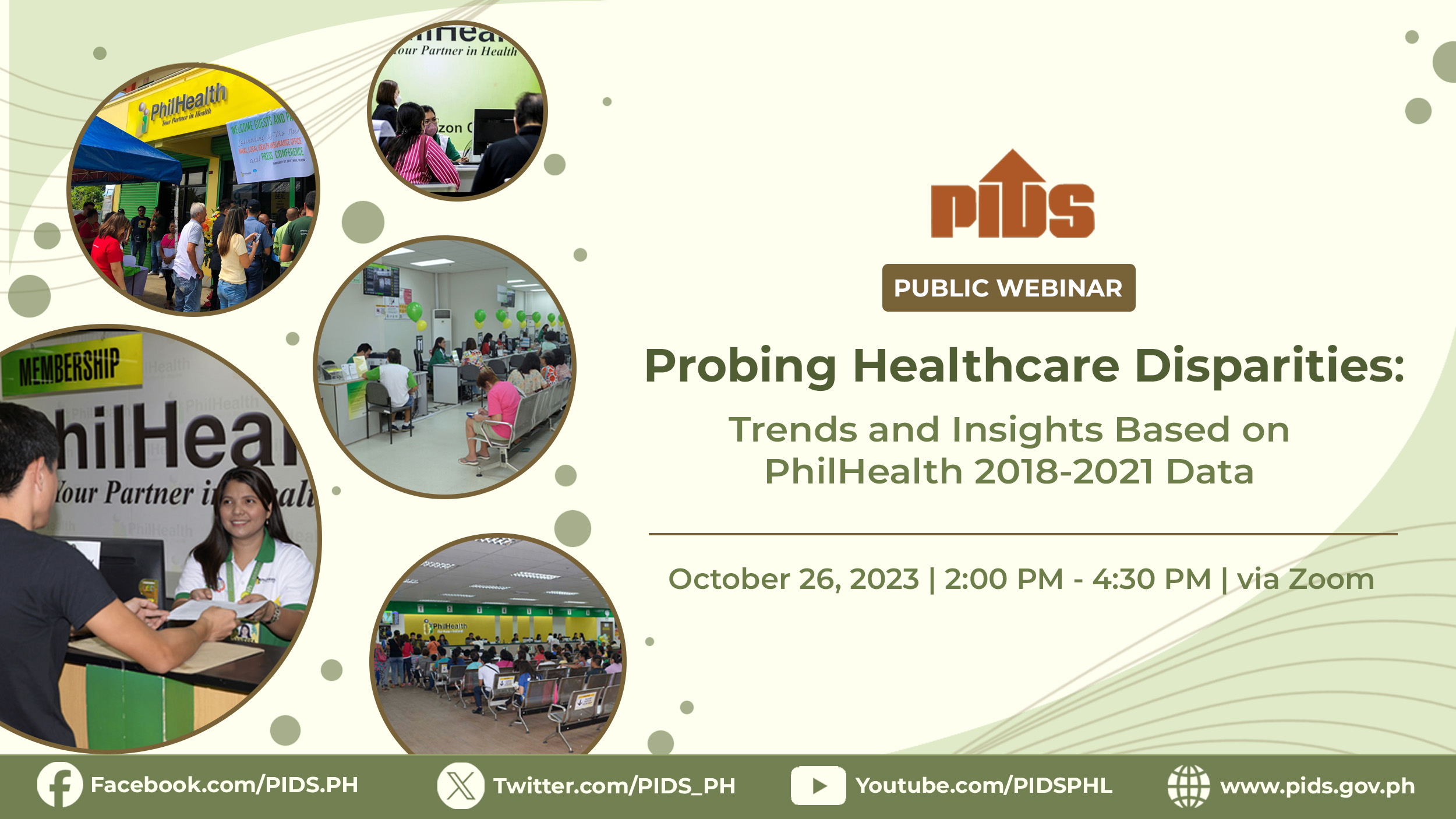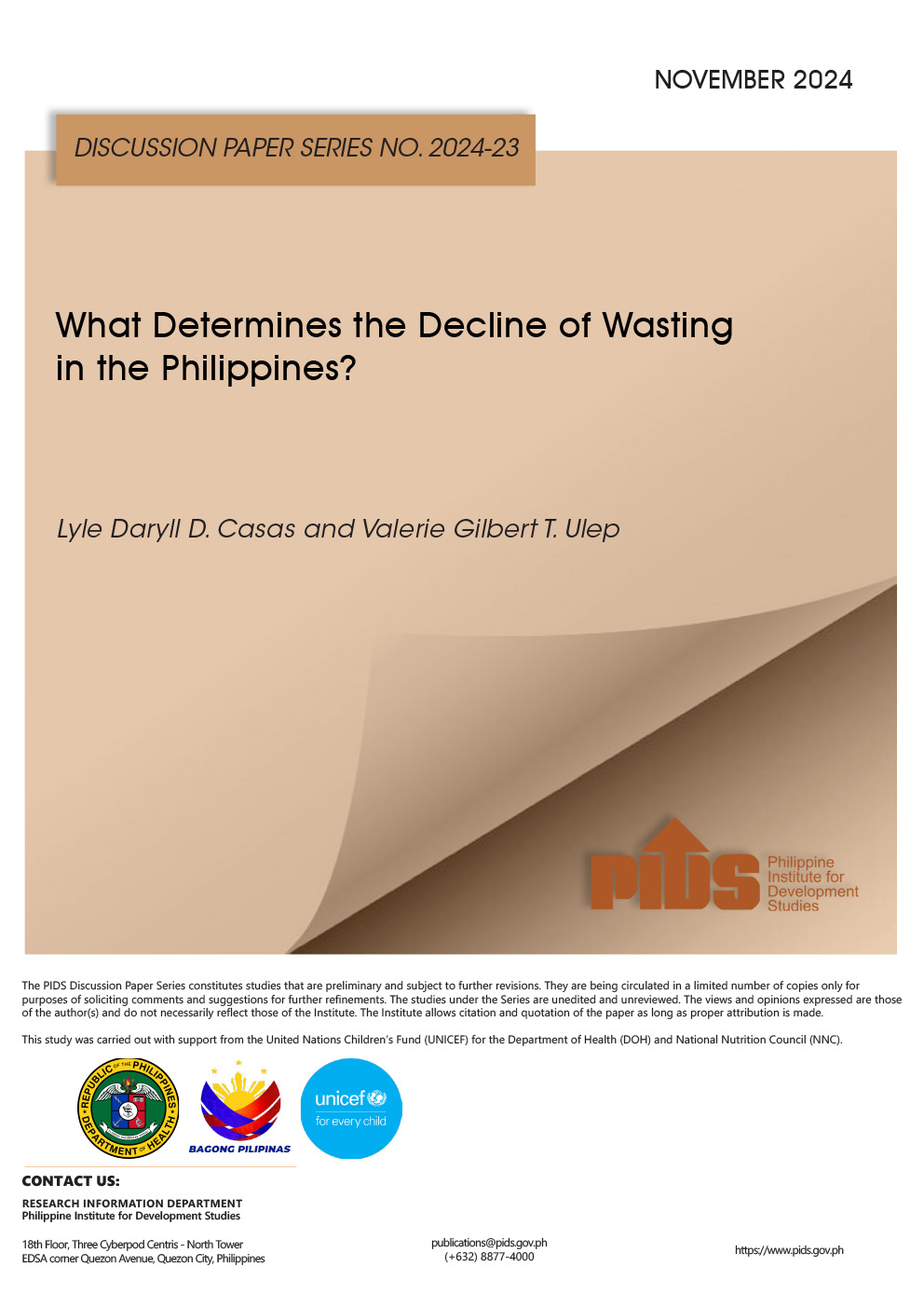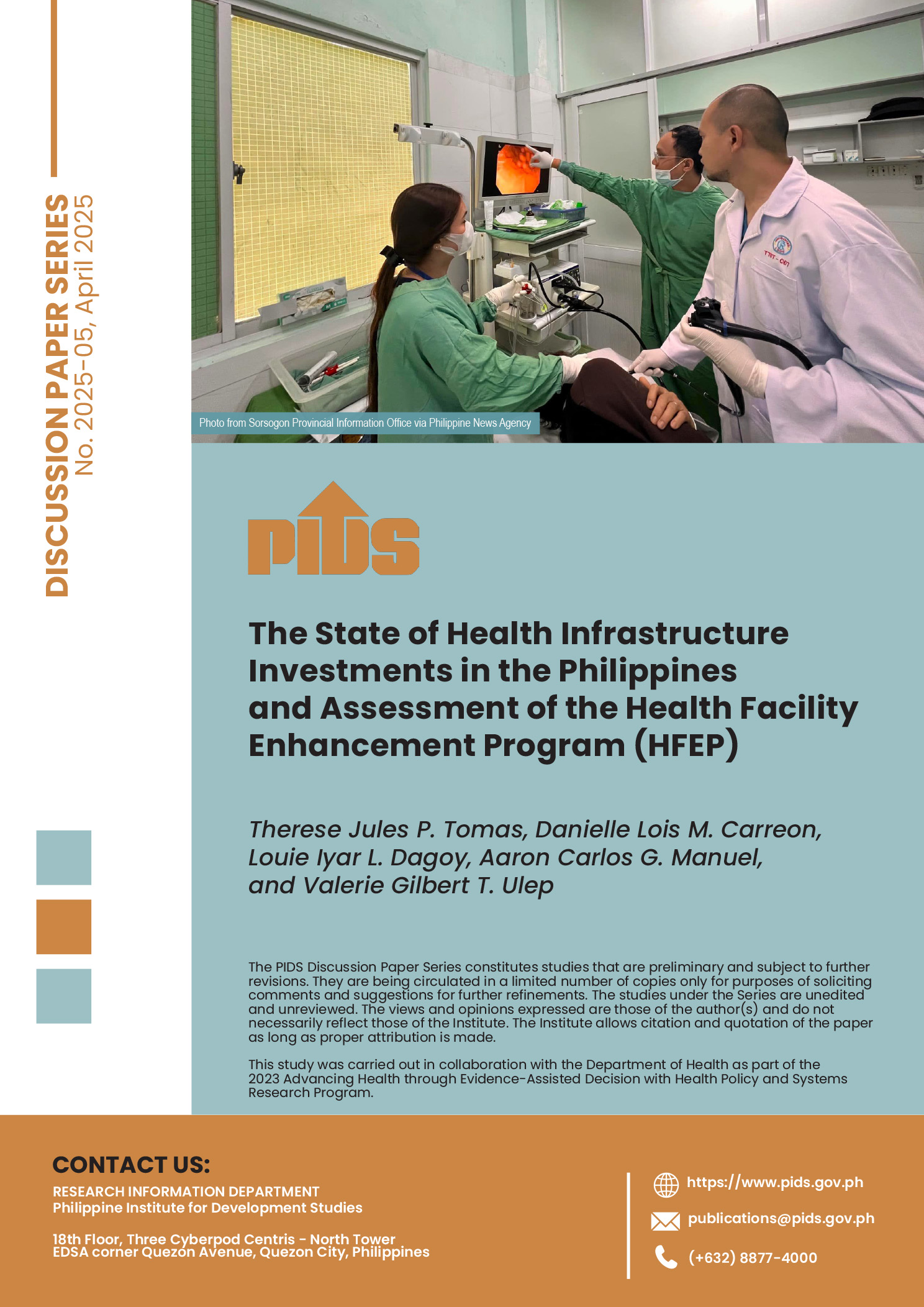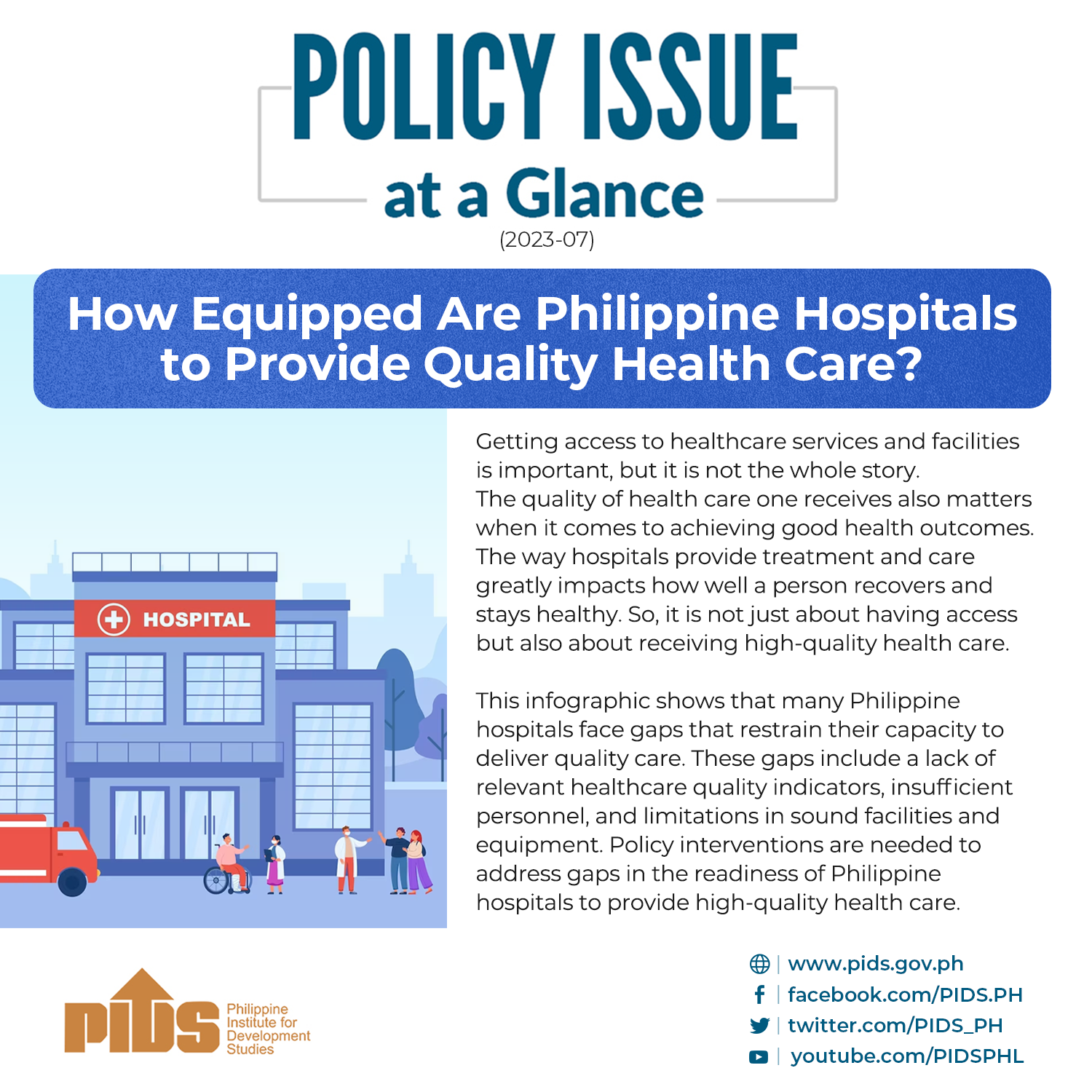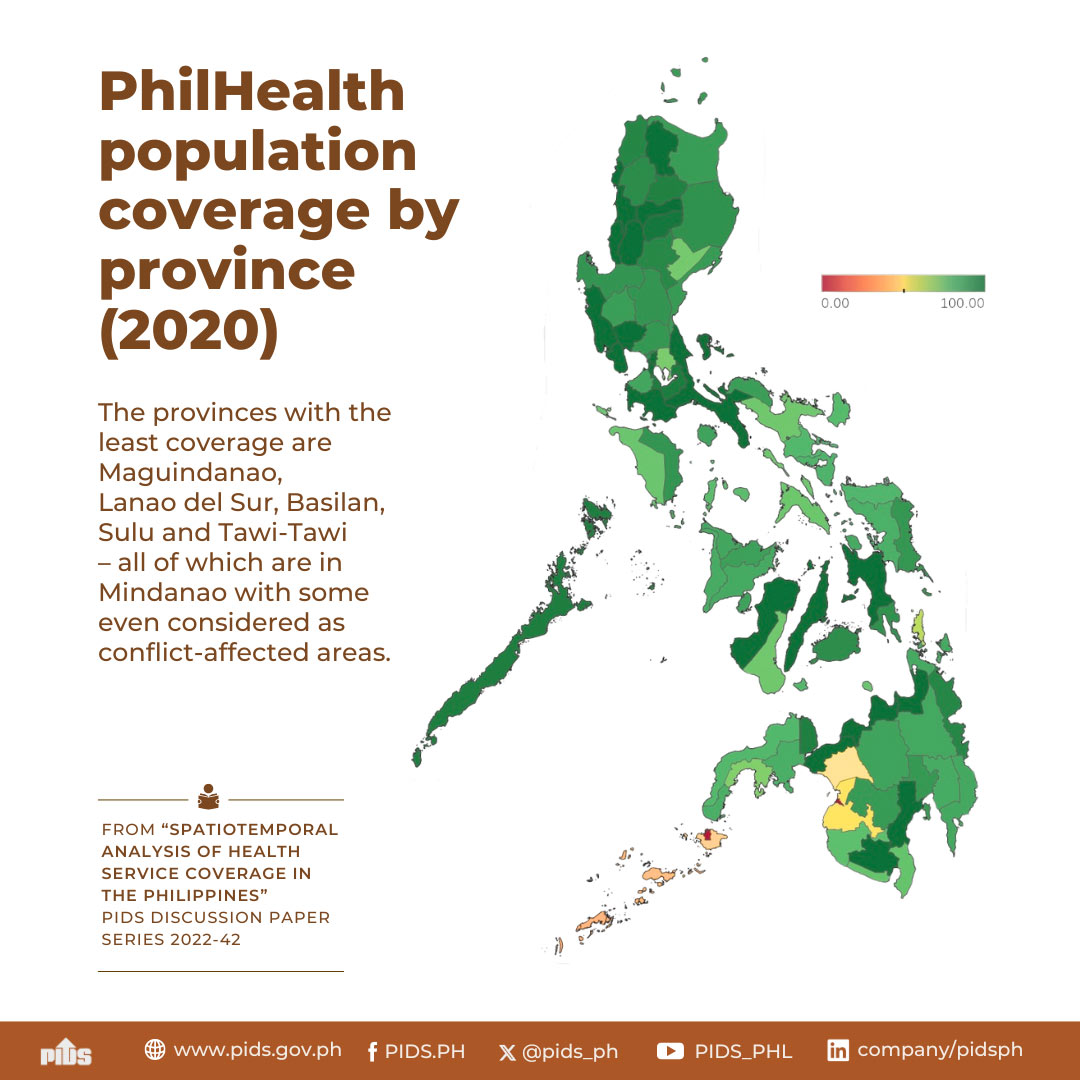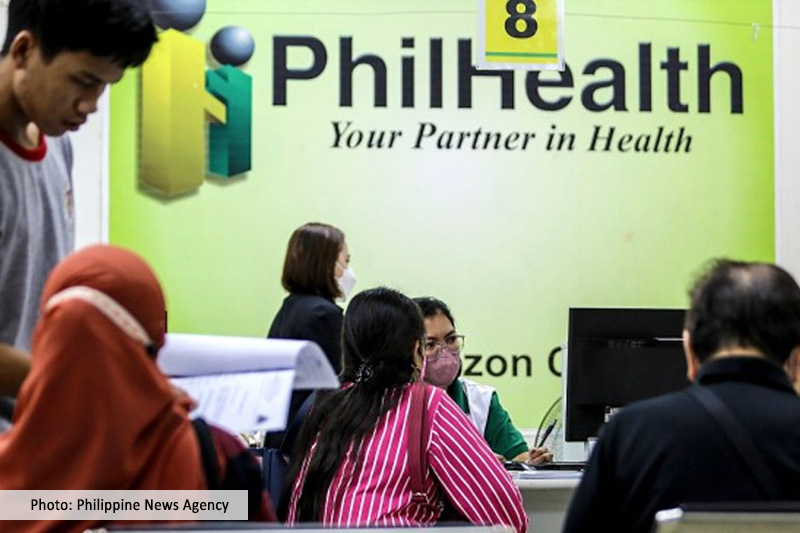
While health outcomes have slightly improved, inequalities persist due to unresolved issues in healthcare access, encompassing limited healthcare infrastructure and financial risks associated with catastrophic health expenses.
This surfaced in a study titled "Spatiotemporal Analysis of Health Service Coverage in the Philippines" authored by Philippine Institute for Development Studies (PIDS) Senior Research Fellow Valerie Gilbert Ulep, Supervising Research Specialist Jhanna Uy, and research consultants Clarisa Joy Flaminiano, Vicente Alberto Puyat, and Victor Andrew Antonio. It was presented at a recent PIDS webinar themed "Probing Healthcare Disparities: Trends and Insights Based on PhilHealth 2018-2021 Data".
According to Ulep, the Philippine health system suffers from major challenges, including disparities in population coverage, facility availability, service accessibility, and financial protection among different subpopulations. Inequalities still exist because of unresolved problems with healthcare access. These issues include the underdeveloped infrastructure for health care and the financial risks that come with unexpected medical costs, especially for disadvantaged populations.
Philippine Health Insurance Corporation (PhilHealth) Primary Care Policy Vice President Albert Francis Domingo, who served as a discussant, lauded the study’s geographical localization, given the ultimate national goal of universal health coverage. He explained, however, that it is more than about looking at national averages but making local health systems well-resourced and accountable for their actions. This is important for PhilHealth as it is moving toward being a strategic purchaser of affordable and quality healthcare benefits and services.
Domingo backed Ulep’s views on the importance of data in improving healthcare systems. He emphasized the need for a comprehensive health system at the provincial and city levels and the value of gathering and utilizing data to enhance the quality and integrity of information used in healthcare policy and operations.
Meanwhile, Philippine Alliance of Patient Organizations President Karen Alparce-Villanueva underscored how crucial health literacy is. “Low health literacy is associated with worse health outcomes, a greater hospital admission rate, and a lower likelihood of following prescribed care and treatment programs,” she noted.
A related solution, she added, is enhanced communication and information through peer education and engaging patients in conceptualizing information to enhance its context, clarity, and relevance. She explained that encouraging patients to take an active role in managing their health is essential, as they need to be “active participants and not just passive recipients of care”.
House Committee on Health Chairperson Ciriaco B. Gato Jr., another discussant at the webinar, discussed the proposed bills in Congress related to universal health care.
“The Committee on Health has pending bills to improve the coverage of healthcare services, such as the DOH Hospital Bed Capacity and Service Capability Rationalization Act, which will grant the Department of Health authority to increase the bed capacity and service capability of hospitals without the need for legislation. In addition, the Committee has slated bills on PhilHealth reforms, such as on the coverage of paying and nonpaying members and on premium rates that members have to pay,” Gato explained.
He added that to achieve the objectives of the Universal Health Care Act, it is essential to strengthen health financing by providing comprehensive coverage to all Filipinos through PhilHealth. Additionally, investing in direct care services for preventive and promotive care and implementing financial protection mechanisms are crucial to prevent financial hardships arising from healthcare costs.
Watch the webinar at https://fb.watch/oaSPlLBcTS/ and https://youtu.be/A8M0s221e4U?si=wvDeFiLUws1jLsxw.
For more videos of PIDS events, go to https://pids.gov.ph/videos. ###

